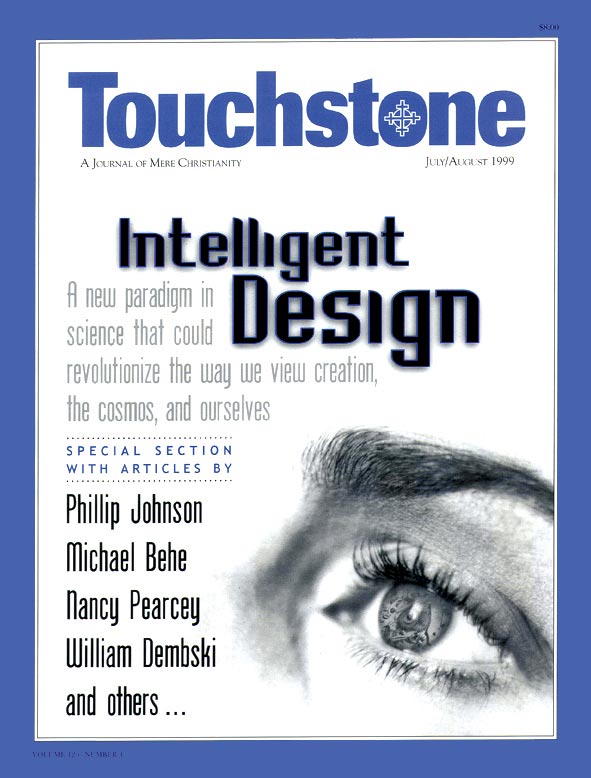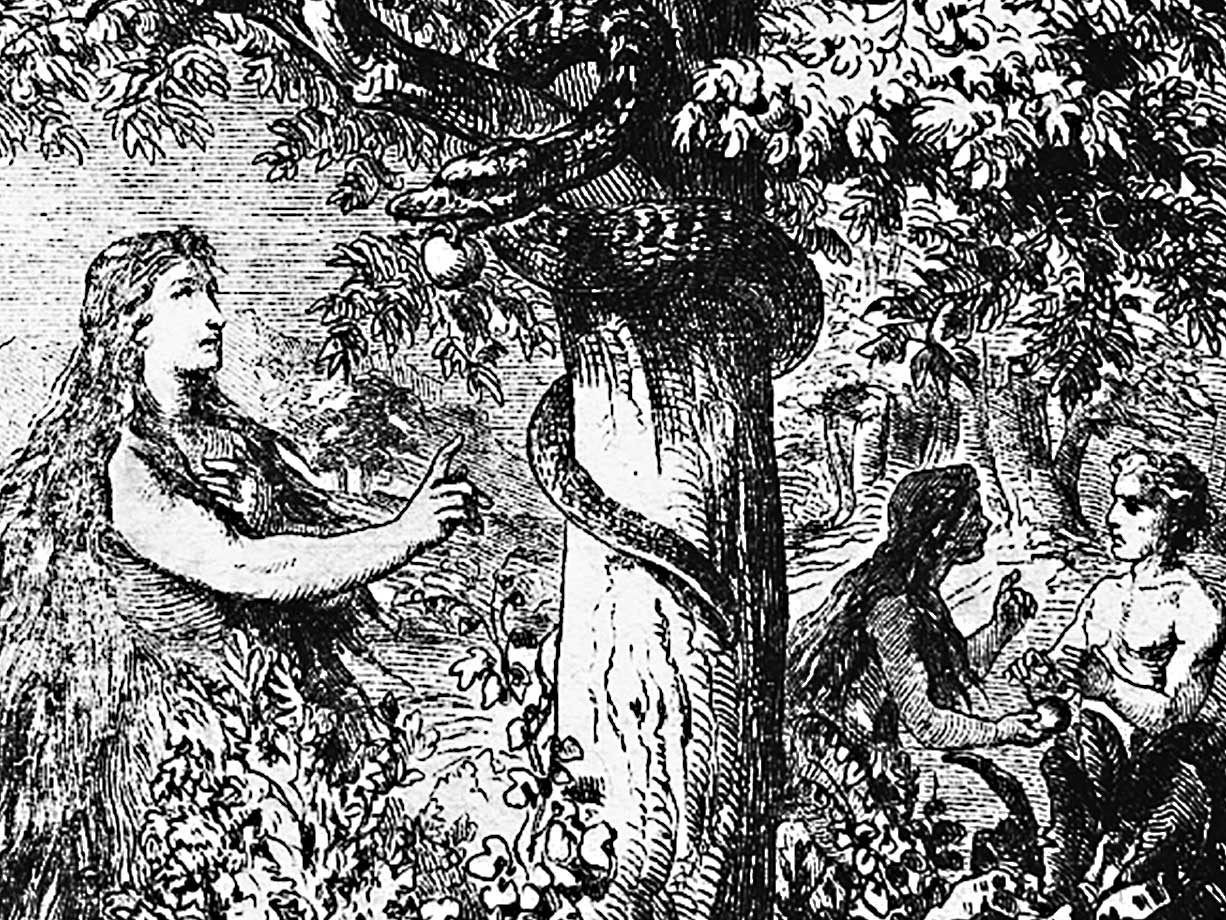The Wedge
Breaking the Modernist Monopoly on Science
by Phillip E. Johnson
The movement we now call the Wedge made its public debut at a conference of scientists and philosophers held at Southern Methodist University in March 1992, following the publication of my book Darwin on Trial. The conference brought together as speakers some key Wedge figures, particularly Michael Behe, Stephen Meyer, William Dembski, and myself. It also brought a team of influential Darwinists, headed by Michael Ruse, to the table to discuss this proposition: “Darwinism and neo-Darwinism as generally held in our society carry with them an a priori commitment to metaphysical naturalism, which is essential to making a convincing case on their behalf.” As I wrote in my introduction to the first edition of the papers from that conference,
I do not think the issue was ever really confronted on this question. . . . What the anti-Darwinists called metaphysical naturalism the Darwinists called “science,” and they insisted that for science to cease being naturalistic would be for it to cease being science. To put the matter in the simplest possible terms, the Darwinist response to the question presented was not “No, that is wrong, because the case for Darwinism can be made without assuming a naturalistic perspective.” Instead, they answered “So what? All that you are really saying is that Darwinism is science.”
That may seem a deadlock, but the amazing thing was that a respectable academic gathering was convened to discuss so inherently subversive a proposition. I was sure that in the long run discussions of that sort would be fatal for Darwinism because they would reveal that the theory finds its justification in philosophy, not evidence. Biologists have legitimate authority to tell us the facts that they observe, in the field and in their laboratories. They have no authority to tell the rest of us what metaphysical assumptions we must adopt. Once it becomes clear that the Darwinian theory rests upon a dogmatic philosophy rather than the weight of the evidence, the way will be open for dissenting opinions to get a fair hearing. In a nutshell, that is the Wedge strategy. Now that several years have passed and a new century is almost upon us, it is time to review how the Wedge has grown and progressed, to evaluate how far we have come, and to forecast what we expect to accomplish in the next decade. But first I need to explain the intellectual background in more detail.
The Background
Most persons who have written about creation and evolution have assumed that they were entering a debate over facts and evidence, and their objective accordingly has been to state in detail what they consider to be the facts and to support their conclusions with evidence. Darwinian evolutionary scientists assert confidently that the Genesis account is mythology, that the earth is billions of years old, that the first primitive living organism emerged from a chemical soup by some combination of chance and chemical laws, and that life thereafter evolved to its present diversity by natural means, guided by natural selection but not by God. Theistic evolutionists defend basically the same account, adding that the evolutionary process was sustained and guided by God in some manner that cannot be detected by scientific investigation. Biblical creationists defend the Genesis account, arguing that Darwinian evolution is bad or biased science while differing among themselves about such important details as whether the “days” of Genesis were twenty-four-hour periods or geological epochs, and whether Noah’s flood was worldwide or local. The argument never goes anywhere.
The Darwinists hold the dominant position in the sense that only their position is taught in public education or promoted in the national media. Nevertheless, they are frustrated and worried that so much resistance remains, especially in North America. Scientists, educators, museum curators, and others have made determined efforts to convince the public, but public opinion polls indicate that the public isn’t getting the message. Over 40 percent of Americans seem to be outright creationists, and most of the remainder say they believe in God-guided evolution. Less than 10 percent express agreement with the orthodox scientific doctrine that humans and all other living things evolved by a naturalistic process in which God played no discernible part. These figures, from recent polls, are practically unchanged from previous polls in the early 1980s. The Darwinists hold a commanding power position for the time being, but they have not convinced the masses. The situation is sufficiently precarious that in 1998 the National Academy of Sciences found it necessary to issue a guidebook on Teaching About Evolution and the Nature of Science (hereafter Guidebook) urging public school teachers to “teach evolution”—i.e., to promote the neo-Darwinian theory—regardless of local opposition.
By “teaching about evolution” the National Academy emphatically does not mean that the teachers should inform students candidly about why the subject is so controversial, and it especially does not want them to make students aware of the dissenting arguments (except perhaps in caricatured form, as presented by Darwinists like Carl Sagan and Stephen Jay Gould). Instead, the Guidebook encourages teachers to mollify the religious people with vague reassurances that “religious faith and scientific knowledge, which are both useful and important, are different,” and to deny that there is any real controversy because “there is no debate within the scientific community over whether evolution has occurred.” To make the controversy disappear, the Guidebook defines evolution so broadly (“descent with modification”) that it “occurs” every time a baby is born. Who can deny that babies are born, and dogs are bred, or that the gene pool is constantly being modified?
This strategy of trivializing the subject might be effective if the science educators and their allies completely controlled the channels of communication, but increasing numbers of high-school and college students come to the classroom already knowing that there are reasonable grounds for dissent, advocated by persons (such as the authors represented in this journal issue) with impressive scientific and academic credentials. The best-informed students also know that prominent writers like Richard Dawkins, Carl Sagan, Edward O. Wilson, and Daniel Dennett promote atheism in the name of evolutionary science, with the apparent approval of the scientific establishment. (Other authorities like Stephen Jay Gould purport to be more friendly to “religious belief,” but only on the condition that religious authorities stick to questions of moral values and defer to science on all issues of fact.) When the National Academy dodges all the tough questions with evasive platitudes, it effectively teaches independent-minded students to regard the pronouncements of science educators with no more trust than they regard political or commercial advertisements. Eventually the scientific community will pay a high price for this campaign of prevarication.
The Two Models of “Science”
Phillip E. Johnson is Professor of Law (emeritus) at the University of California at Berkeley. He is the author of Darwin on Trial, The Wedge of Truth, The Right Questions (InterVarsity Press), and other books challenging the naturalistic assumptions that dominate modern culture. He is a contributing editor of Touchstone.
subscription options
Order
Print/Online Subscription

Get six issues (one year) of Touchstone PLUS full online access including pdf downloads for only $39.95. That's only $3.34 per month!
Order
Online Only
Subscription

Get a one-year full-access subscription to the Touchstone online archives for only $19.95. That's only $1.66 per month!
bulk subscriptions
Order Touchstone subscriptions in bulk and save $10 per sub! Each subscription includes 6 issues of Touchstone plus full online access to touchstonemag.com—including archives, videos, and pdf downloads of recent issues for only $29.95 each! Great for churches or study groups.
Transactions will be processed on a secure server.
more on science from the online archives
more from the online archives
calling all readers
Please Donate
"There are magazines worth reading but few worth saving . . . Touchstone is just such a magazine."
—Alice von Hildebrand
"Here we do not concede one square millimeter of territory to falsehood, folly, contemporary sentimentality, or fashion. We speak the truth, and let God be our judge. . . . Touchstone is the one committedly Christian conservative journal."
—Anthony Esolen, Touchstone senior editor













